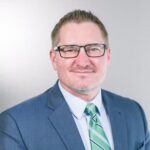
But what exactly does whole-person care mean? Whole-person care is a unique system of care that focuses on the “big picture” of a person’s health. This philosophy takes into consideration a diverse spread of factors that contribute to the health outcomes of a person such as economic conditions, social stressors, environmental exposures, and behavioral factors in addition to physical and mental health.
On the flip side, integrated care presents a method of streamlining disjointed services and separate pockets of care to offer a comprehensive healthcare approach that considers the whole person. It involves reshaping the structure of healthcare services and organizations to enhance care accessibility, encompass various provider disciplines and entities, and foster extensive interdisciplinary collaboration.
To meet these rising demands for integrated, whole-person care models, OPEN MINDS has created the Whole Person Care Learning Path, which offers customized content and strategies to help provider organizations develop comprehensive, patient-centered care that addresses physical, mental, and social well-being.
View featured courses and sessions below to get started!
Uniting For Impact: How Centerstone & Brightli’s Strategic Growth & Vision Are Shaping The Future Of Behavioral Health
Two of the nation’s leading nonprofit behavioral health organizations—Centerstone and Brightli—have come together in a groundbreaking merger designed to expand access, strengthen sustainability, and drive innovation in care. In this keynote session, leaders from both organizations will share their vision, lessons learned, and the strategic priorities guiding this transformational alignment. Join this forward-looking conversation to learn how strategic growth through partnership can accelerate impact and reimagine what’s possible for behavioral health organizations nationwide.
Attendees will gain an inside look at how the merger is positioning the combined organization to:
- Enhance service delivery across communities and populations with complex needs
- Leverage scale and shared resources to invest in workforce development and technology
- Navigate market uncertainty while advancing mission-driven care
- Shape the broader behavioral health landscape through collaboration and innovation
David C. Guth, Jr.

David Guth is Centerstone’s Chief Executive Officer, a nonprofit health system specializing in mental health and substance use disorder treatments. Guth has more than 40 years of health care leadership and has served as Centerstone’s Chief Executive Officer since 1991. Under his leadership, the organization has grown from $6M in revenues and 300 staff serving 2,000 individuals to revenues of $1.1 billion and over 10,000 staff serving more than 250,000 people each year.
Guth has served on the Board of Directors for many notable organizations, including Triad Learning, the Executive Committee of the National Action Alliance for Suicide Prevention, and the Board of Visitors for the University of Tennessee’s College of Social Work. He is highly regarded in the industry and has received many recognitions, including the National Council Visionary Leadership award, Nashville Business Journal’s Health Care Power Leaders Award, and the Douglas Henry Award for Service to Children and Families at Risk from the University of Tennessee’s College of Social Work. Guth also works as an industry consultant, primarily in the area of affiliations, mergers, and acquisitions. The National Council for Behavioral Health published Guth’s book on mergers, “Strategic Unions: A Marriage Guide to Healthy Not-for-Profit Mergers.”
Guth graduated from Vanderbilt University with a bachelor’s degree in mathematics and from the University of Tennessee with his master’s degree in social work administration and planning.
CJ Davis

Dr. C.J. Davis is CEO-elect at Centerstone, a nonprofit health system specializing in mental health and substance use disorder treatments. Davis is a nationally recognized leader in behavioral health and a foremost expert in building affiliations that expand access to life-saving and life-changing care. With more than 30 years of experience as both an executive and a clinical psychologist, Davis has dedicated his career to ensuring that individuals and families can reach the compassionate, comprehensive care they need—when and where they need it.
Prior to joining Centerstone, Davis served as President and CEO of Burrell Behavioral Health and later as CEO of Brightli, Inc., the parent company of Burrell, Preferred Family Healthcare, Southeast Missouri Behavioral Health, Comprehensive Mental Health Services, and other affiliates. Under his leadership, Brightli became one of the nation’s largest nonprofit behavioral health systems, employing more than 5,000 people across 200 locations in five states and generating nearly $600 million in annual revenue.
Widely regarded as a national leader in behavioral health affiliations, Davis has led or been instrumental in more than 10 major mergers and partnerships, uniting organizations around shared missions, cultures, and visions. His leadership philosophy centers on improving access, advancing the delivery of care, and driving innovation to meet the evolving needs of a rapidly changing healthcare landscape. From integrating behavioral health and primary care to scaling community-based programs, Davis has worked to design systems that break down barriers and deliver meaningful outcomes for those they serve. His career spans nearly every level of behavioral healthcare including community treatment, residential programs, inpatient services, and criminal justice settings across Missouri, Pennsylvania, and Indiana.
He currently serves on the boards of MHCA and his alma mater, Culver-Stockton College. His leadership has been widely recognized: Biz 417 Magazine named him one of its “10 for the Next 10,” and theSpringfield Business Journal honored him as both a Man of the Year (2019) and CEO of the Year (2021). Davis earned his Bachelor of Science in Psychology, Master of Science in Clinical Counseling Psychology, and Doctorate in Clinical Psychology. Through every affiliation, innovation, and partnership, he remains committed to one unifying purpose: building stronger systems that expand access, elevate care, and create healthier communities.
Beyond The Blueprint: Real-World Case Studies In Implementing Whole Person Care

This session will spotlight leaders from behavioral health, primary care, housing, and justice-involved services who have successfully operationalized integrated care. Presenters will walk through implementation lessons learned—navigating barriers like EHR interoperability, workforce challenges, and care coordination bottlenecks—offering actionable guidance and KPI insights for peers.
Wayne Young, MBA, LPC, FACHE

As the Chief Executive Officer of one of the largest behavioral health organizations in the nation, Wayne Young is passionate about the planning and delivery of large-scale behavioral health and intellectual and developmental disabilities services to a population who rely upon safety net systems of care. Wayne previously served as the chair of the Texas Health and Human Services Commission’s Behavioral Health Advisory Council and currently services on Texas HHSC’s Joint Forensic Committee on Access and Forensic Services. He was recently appointed by the Supreme Court of Texas to the Texas Judicial Commission on Mental Health and also service as a board member of the National Association of Addiction Treatment Providers. Wayne was honored to have received the Charley H. Shannon Advocate for Justice Award from NAMI Texas in 2019 as well as to have been named to Modern Healthcare’s list of Top 25 Innovators in 2019 and again 2021. In 2023, Wayne was recognized as one of Houston’s Most Admired CEO’s. While honored by individual recognitions, Wayne is most proud to have been a part of The Harris Center as it received the Excellence Award for Innovation from the National Council on Behavioral Health and was named as a Best Place to Work by The Houston Business Journal who also honored them with a Diversity in Business Award in 2023 and 2024.
The Harris Center for Mental Health and IDD is the state-designated Local Mental Health Authority and Local Intellectual and Developmental Disability Authority for Harris County, Texas.
Stratify, Engage, Intervene: Models & Workflows For Integrating Teams In Whole Person Care

Featuring models that use risk stratification to deploy multi-disciplinary teams with precision, this session explores how organizations are prioritizing high-need populations using real-time data and structured workflows. Panelists will share tools and algorithms that inform staffing, outreach, and treatment planning across quadrants of behavioral and physical health complexity.
Amanda Zwirecki, MSEd

Amanda Zwirecki, MSEd is the Director of Evaluation at Endeavor Health Services, where she oversees Evaluation, Quality Improvement, and the Population Health Departments across all programming, including SAMHSA grant-funded initiatives. With more than 10 years of experience in behavioral health, training, and workforce development, Amanda is dedicated to strengthening service quality through data-informed decision-making, education, and continuous improvement. She works closely with clinical and non-clinical staff to translate learning into practice and improve systems of care, with a focus on enhancing client outcomes and overall community health. Amanda is a graduate of the Health Foundation for Western and Central New York Leadership Fellows program and an active member of the American Evaluation Association (AEA).
Chloe Hurley, MPH

Chloe Hurley, MPH is the Coordinator of Population Health at Endeavor Health Services in Buffalo, NY. She has worked within Certified Community Behavioral Health Clinics (CCBHC) and primary care practices for over 7 years. Chloe is a certified practice facilitator in the primary care setting and has designed, implemented, and evaluated whole person approaches to care. She currently supports the project management of a SAMHSA CCBHC Improvement and Advancement Grant as well as a Critical Time Intervention (CTI) Team in New York State. Chloe holds a Master of Public Health with a concentration in health policy and a micro-credential in health care operations from Vanderbilt University School of Medicine.
Sustainable Health Plan Relationships: Financing & Contracting Strategies For Whole Person Care

As grant funding sunsets, organizations must sustain integration through new payer strategies. This session will explore Medicaid managed care contracting, value-based payment pilots, and blended funding approaches. Panelists will discuss how to position services for inclusion in medical loss ratios and population health frameworks.
Gilbert Lichstein

Gilbert Lichstein is the Chief Operating Officer at the Illinois Health Practice Alliance (IHPA), a behavioral-health focused independent practice association serving members through value-based agreements throughout the state of Illinois. This organization has demonstrated success in generating pay for performance, quality, and shared savings results for the past 7 years, and Gilbert has played a key role in developing and maintain the clinical model, data systems, and agreements that help make the model a success.
Prior to his role at IHPA, Gilbert oversaw a range of residential and outpatient mental health and addiction treatment programs and is licensed as a Counselor in the state of Illinois. Gilbert’s clinical interests include program implementation of evidence-based practices, and Gilbert is a MINT-trained Motivational Interviewing trainer. Gilbert holds Master’s degrees in Aerospace Engineering and Clinical Psychology, and a Bachelor’s degree in Physics.
Gilbert is based in Chicago, and enjoys cycling and playing music in his spare time.
Enrico Cullen

Enrico Cullen is CEO of Omnes Health IPA, a network of 36 providers across 34 New York counties from the Canadian border to Pennsylvania, serving 80,000 patients with a combined network revenue of $800M. The network includes Article 16, 28, 31, and 32 providers, an FQHC Look-Alike, and seven Certified Community Behavioral Health Clinics (CCBHCs). Omnes Health IPA has purpose-built a centralized technological infrastructure for point-of-care and multivariable population analysis. Enrico has negotiated value-based arrangements for social care and behavioral health and holds advanced training from Harvard Business School and Columbia Business School, positioning him to address rural health challenges through localized, evidence-based solutions.
Closing The Loop: Measuring What Matters In Whole Person Care

Delivering whole person care requires more than good intentions—it demands a system that captures, tracks, and responds to what matters most for the individuals we serve. This panel will explore how organizations are building performance feedback systems that align integrated care delivery with measurable outcomes. Panelists will share how they’re using real-time data to connect physical health, behavioral health, and social supports across teams and systems. The discussion will focus on how to “close the loop” between frontline service delivery and enterprise-level performance—ensuring that care plans are implemented, progress is tracked, and improvement strategies are data-informed. Topics will include integrated dashboards, cross-functional KPIs, client-reported outcomes, and feedback structures that support whole person, value-driven care.
Michael Dennis, Ph.D.

Dr. Michael Dennis received his PhD in Psychology from Northwestern University under a NIH fellowship to train more methodologists in how to implement and improve the quality of community-based behavioral health research. His dissertation was on implementing randomized field experiments in criminal and civil justice research to improve their impact on practice. He currently serves as Director of the Lighthouse Institute (LI), a division of Chestnut Health Systems conducting community-based research, program evaluation, and training on evidence-based practices. LI currently has offices in Bloomington-Normal and Chicago, Illinois and Eugene, Oregon; offsite staff in over two dozen states; over 110 LI staff operating four major centers related to training on assessment, evidence-based treatment, family coaching, program evaluation; and a Native-led national Native Center of Excellence. LI works with community-based agencies in all 50 of the United States, four U.S. territories, and over four dozen tribal serving agencies, as well as all Canadian provinces and over a dozen other countries. Part of LI’s community focus includes the use of service cascades, simplified time series, and economic analysis from the agency and funder perspectives to aid in program planning and management. In addition to supporting a diverse workforce that reflects the communities we serve, LI is working to become a home for supporting the career development and work of researchers with personal lived experience in addiction, recovery, and the legal system.
As a senior research scientist, Dr. Dennis is currently the Principal Investigator (PI) of the Smartphone Addiction Recovery Coach for Young Adults (SARC-YA) experiment (DA011323) and a Multiple PI (with Dr. Christine Grella) of Improving Retention across the OUD Service Cascade upon Reentry from Jail using Recovery Management Checkups (UG1DA050065). The latter is part of NIDA’s HEAL Justice Community Opioid Innovation Network (JCOIN) cooperative. He also serves as the Co-Investigator on Dr. Dennis Watson’s Recovery Management Checkups for Primary Care (RMCPC) experiment (R01AA024440); Dr. Chris Grella’s Recovery Initiation and Management after Overdose (RIMO) Experiment (R33DA045774); and Dr. Kate Elkington’s Original and Scaling up eConnect in Juvenile Probation Settings, a hybrid implementation effectiveness trial of a digital suicide risk/behavior identification and linkage-to-treatment system (MH113599, MH130845).
In the past, he has been the Coordinating Center PI on the Juvenile Justice Translational Research for Adolescents in the Legal System (JJ-TRIALS; U01DA036221) cooperative agreement and the Cannabis Youth Treatment experiment, as well as Dr. Chris Scott’s Recovery Management Checkups for Woman Offenders Experiment (5R01DA21174). JJ-TRIALS is one of the largest and most recent studies of transitional research with adolescents and included national surveys of juvenile justice community supervision to examine their behavioral health services related to suicide, mental health, substance use, and HIV risk reduction. The study also included a multisite experiment to examine LI’s ability to improve the behavioral health service cascades from the justice system to behavioral health (e.g., screening, identification, need, referral, treatment initiation, engagement, and continuing care). HEAL supplements were also used to conduct surveys of a census of the state prison systems and county jails hardest hit by the opioid epidemic. The Cannabis Youth Treatment (CYT) experiment was one of the first to evaluate five manualized approaches compared on a large sample of youth and families studied (600), with high rates of participation, treatment fidelity, follow-up, publication, and impact in terms of citations and replication. To date, the Dennis et al. (2004) CYT main findings have been cited over 1,000 times. Dr. Dennis has also participated in the conduct of a half dozen other treatment experiments, development of research-based treatment guidelines, and has chaired both major adolescent treatment associations (JMATE and SASATE). The significance of this work led to his receiving the Joint Meeting on Adolescent Treatment Effectiveness (JMATE) Research to Evidence-Based Practice award for bridging the gap between adolescent treatment research and practice.
Dr. Dennis and his colleagues developed Recovery Management Checkups (RMC) and demonstrated efficacy in four clinical trials and a quasi-experiment to date. He received a MERIT award (R37DA011323) from NIDA after LI’s first clinical trial and the 2012 Dan Anderson Award for Addiction and Recovery Research for his 2012 paper reporting on the main findings from our second trial. He and his colleagues have also worked with economists to demonstrate that the cost of RMC and increased treatment is offset by reductions in expensive health care utilization (e.g., emergency department visits, hospital stays, psychiatric hospitalization, incarceration), and have replicated this work with the State of Illinois to use RMC to recruit over 1,000 additional clients into methadone treatment. As part of NIDA’s HEAL JCOIN cooperative, LI is currently conducting a fifth experiment with RMC for people with opioid use disorders (OUD) coming from Cook County Jail, a study that is expanding into five other county jails. He has worked with individuals with OUD since 1988 on medications for opioid use disorders (MOUD) treatment initiation, retention, readmission, and recovery support and has experience working within the community, in a variety of MOUD and other types of treatment, as part of continuum of care studies, and as part of studying and managing long-term recovery over periods of 6 months to 19 years.
To integrate measurement, clinical research, and practice, Dr. Dennis has also led the development of the Global Appraisal of Individual Needs (GAIN) family of measures since 1993. As of June 30, 2023, the GAIN Coordinating Center (www.gaincc.org) has worked with over 21,154 staff from 5,602 agencies (in all 50 states in the U.S., all 10 provinces of Canada, and 14 other countries), teaching them how to utilize the GAIN measures to support clinical decision making related to diagnosis, treatment planning, placement, outcome monitoring, economic evaluation and program/policy planning. The GAIN has also been used in over 900 publications. This includes using formal measurement models to create shorter and more efficient versions of the GAIN to get much of the core information in less time. The significance of this work led to Dr. Dennis receiving the International Council on Alcoholism and Addiction (ICAA) lifetime achievement award for his work with the GAIN. He has been PI, Co-PI, or lead methodologist on a dozen clinical trials, chaired one of NIDA’s data safety monitoring boards, chaired NIAAA’s health services research review group, and served on multiple editorial boards.
Jim Wallis, MAPC

Jim Wallis, B.S., M.A. is the Director of Business Development at Chestnut Health Systems, www.chestnut.org since October of 2016.
With 35 years in behavioral health in the Mid-West, Jim began his career in Missouri in 1989 as a Deputy Juvenile Officer. He was further employed with the Missouri Division of Youth Services. From 2004 – 2016, Jim worked at a large not-for-profit behavioral health organization in the Midwest US in several clinical and development administrative executive roles. A primary focus during this tenure was patient access to rural healthcare.
Jim has served on numerous State level and National Board of Directors, and Advisory Boards including the National Frontier and Rural ATTC Advisory Board.
Education includes: B.S. in Criminology and Criminal Justice from the University of Missouri – St. Louis (1992), and M.A. in Professional Counseling from Lindenwood University (2002.)
As an alumni and adjunct faculty member at the University of Missouri St. Louis, Jim teaches a master’s level “Family Policy and Advocacy” class at the School of Social Work.
Jim currently focuses on growing and fostering Chestnut Health Systems business development services lines as they relate to the agency’s Behavioral Health footprint in the Mid-West, as well as our robust research institute, Lighthouse, which currently serves the entire United States, Canada, and 16 Countries internationally.
Stacey Coleman, MPH

Stacey Coleman, MPH, serves as the Director of Quality Management for Coastal Family Health Center (CFHC), where she leads organizational efforts to embed a sustainable culture of safety, quality, and accountability across a seven-county service area. With more than 13 years of progressive leadership experience, she has designed, implemented, and managed comprehensive Quality Assurance and Performance Improvement (QAPI) programs that support high-reliability care and regulatory excellence.
Ms. Coleman provides strategic oversight of HRSA-mandated quality and value-based care programs, as well as health information technology training and optimization. Her work has ensured continued compliance with NCQA Patient-Centered Medical Home standards, Joint Commission Accreditation for Ambulatory and Behavioral Health Services, and HRSA Quality Improvement and Assurance requirements. Under her leadership, all CFHC standalone clinics achieved initial Level 3 NCQA PCMH recognition and have successfully maintained recognition through the transformation annual reporting model.
A recognized leader in the health center quality community, Ms. Coleman has participated in multiple national learning collaboratives and currently serves on the NACHC QA/QI Advisory Board and the NACHC NextGen Steering Committee. She is an active member of the Community Health Center Association of Mississippi and co-chairs the HRSA Uniform Data System Training and Technical Assistance (UTC) Steering Committee.
Ms. Coleman holds a Bachelor’s degree in Anthropology and a Master of Public Health with an emphasis in Epidemiology and Biostatistics. She resides in Gulfport, Mississippi, with her daughter, and has been a classically trained pianist for over 30 years.

Meagan Lanier, LCSW, CAADC, CHPSE, CPHRM

Meagan Lanier serves as the Director of Corporate Compliance at Coastal Family Health Center, where she brings more than 13 years of dedicated service and institutional knowledge to the organization. She began her career at Coastal as a master’s-level social worker and has since advanced into leadership through a strong commitment to professional growth, regulatory excellence, and community-focused care.
While employed at Coastal Family Health Center, Meagan earned her Licensed Clinical Social Worker (LCSW) credential and her Certified Advanced Alcohol and Drug Counselor (CAADC) certification. Her clinical foundation provides a unique and practical perspective in her current role, allowing her to balance compliance requirements with patient-centered operations.
As Director of Corporate Compliance, Meagan oversees a broad portfolio of responsibilities, including grant writing, organizational risk management, and service as the HIPAA Privacy Officer. She also provides leadership and oversight for the contracts, medical records, social services, and credentialing departments, ensuring regulatory compliance, operational efficiency, and high-quality service delivery across the organization.
Meagan is known for her collaborative leadership style and her ability to translate complex regulatory requirements into actionable processes that support both staff and organizational growth. Her work plays a critical role in maintaining compliance, securing funding, and advancing Coastal Family Health Center’s mission to provide accessible, high-quality care to the communities it serves.
No Wrong Door: Applying Managed Care Principles To Safety Net Services In Colorado & Beyond
Colorado’s new Behavioral Health Administration (BHA) and its Behavioral Health Administrative Service Organizations (BHASOs) are redefining what it means to create a “no wrong door” system of care. Established by HB22-1278, the BHA was charged with uniting Colorado’s fragmented behavioral health landscape, spanning safety-net services and uninsured populations under a single, coordinated framework.
In this keynote, Daniel Darting, CEO of Signal Behavioral Health Network, will explore how BHASOs complement Medicaid plans while strengthening the safety net for those who fall outside it.
Learn how the BHASO model can act as a translator and bridge-builder between clinical, financial, and policy worlds by integrating and optimizing state funding streams, standardizing provider expectations and care, and ensuring that every Coloradan can find help regardless of insurance status or ability to pay. By streamlining contracting, reducing administrative burden, and improving data transparency, this model gives provider organizations more stability and flexibility to focus on care. Attendees will learn how governance, funding, and data strategies are driving results in Colorado—and what lessons other states can apply to redesign their own behavioral health systems for greater equity, efficiency, and impact.
Daniel Darting

Daniel Darting is the Chief Executive Officer of Signal Behavioral Health Networking Colorado, where he has served since 2008 and led as CEO since 2015. Under his leadership, Signal has expanded its impact across Colorado, improving individual and community behavioral health services.
Daniel is widely recognized for blending technical expertise, policy insight, and collaborative leadership. Prior to stepping into executive leadership, he held key roles in information technology and systems development, supporting secure healthcare data operations and large‑scale system planning. This technical foundation continues to inform his strategic approach to modernizing the behavioral health landscape.
In partnership with state, county, and community leaders, Daniel advances initiatives that improve service delivery, enhance quality, and drive meaningful policy change. His leadership extends beyond Signal: he has serves as President of the Colorado Providers Association and participates in other associations and boards.
Daniel played a key role on a Colorado task force commissioned by Governor Jared Polis to rearchitect the entire statewide behavioral health system—helping produce a comprehensive blueprint that will guide the system’s evolution for years to come.
Before entering behavioral health administration, Daniel worked across multiple sectors, including healthcare, employee benefits administration, higher education, and media—bringing a breadth of experience that continues to shape his approach as CEO.
Preparing For Impact: Performance Management As A Financial Sustainability Tool
Behavioral health leaders face a defining opportunity: to turn data into a strategic asset that drives sustainable growth and lasting impact. Join Monica E. Oss, Chief Executive Officer of OPEN MINDS, as she explores how executive teams can move beyond data collection to true data fluency – embedding analytics into decision-making, performance improvement, and organizational culture.
Monica E. Oss

Monica E. Oss, M.S. is the founder of OPEN MINDS and serves as its chief executive officer, executive editor of its publications and websites, and executive lead of its consulting engagements. For the past three decades, Ms. Oss has led the OPEN MINDS team and its research on health and human service market trends and its national consulting practice. She is well known for her numerous books and articles focused on the strategic and marketing implications of the evolving health and human service field – and its focus on the verticals of the field serving consumers with chronic conditions and complex support needs.
Ms. Oss has extensive experience in developing and implementing growth strategies for a wide array of organizations in the field. She has expertise in industry trend analysis, reimbursement, rate setting, and creating actionable plans for market success. In her role, she has led numerous engagements with state Medicaid plans, county governments, private insurers, and health plans, service provider organizations, technology vendors, neurotechnology and pharmaceutical organizations, and investment banking firms – with a focus on the implications of financing changes on delivery system design.
Prior to founding OPEN MINDS, Ms. Oss served as an executive with a nationally managed behavioral health organization, responsible for market development, actuarial analysis, and capitation-based rate setting. She also held a position as vice president of the U.S. risk management and underwriting division of an international insurance company.
Ms. Oss has been the keynote speaker at the conferences of dozens of national associations and has been published in a wide range of professional journals and trade publications. She has provided Congressional and state legislative testimony on issues as diverse as the financial impact of parity and payer medication access policies.
Ms. Oss has led a range of industry research and consultation initiatives, serving as principal investigator on research projects that include the examination of national managed care enrollment and service patterns, development of provider rate structures for government entities, creation of return-on-investment models for technology investments; design of performance-based compensation models within public and private health plans; and analysis of the economic impact of changes in benefit design, adoption of evidence-based practices, and new technologies.

